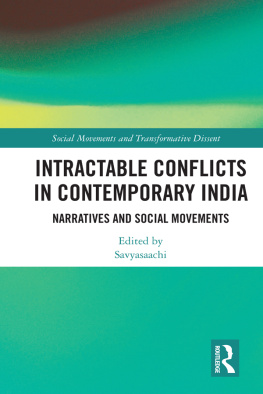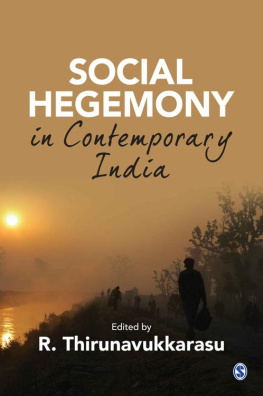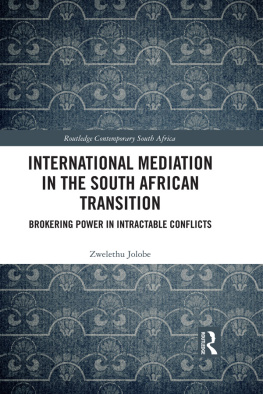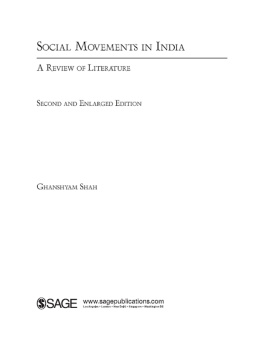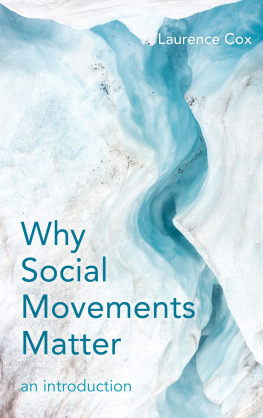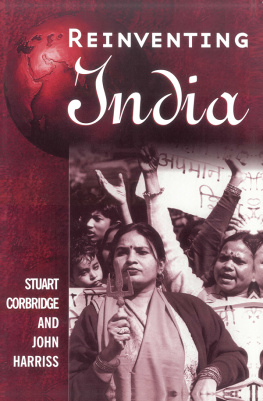Intractable Conflicts in Contemporary India
This book attempts a representation of society in contemporary India through an ethnography woven around long-standing intractable conflicts of displacement and rehabilitation, patriarchy, insurgency and counter-insurgency operations, and climate change. Each chapter in this volume offers a critical transformative narrative in response to these conflicts. It asks how social justice and equality is to be constructed and provides a fresh perspective.
It is argued that social movements can no longer be concerned only with itemizing a checklist of demands; it is now necessary to be free of the hegemony of current frames, categories, concepts and principles, and to rethink the promise. This volume maintains that this effort to step out of the endless waiting for delivery of a promised value draws out the labour of transformative action. A valuable contribution to understanding social movements in India, this work challenges the established discourses around grassroots politics, progressive policies and legislations as well as radical mass movements.
The book will interest students and researchers of social movements, conflict and peace studies, sociology and social anthropology, political science, and development studies. It will also be useful to those working in the areas of human rights, social exclusion and inclusive policies.
Savyasaachi is Professor at the Department of Sociology, Jamia Millia Islamia, New Delhi, India. He works in the fields of social theory and method, political ecology, indigenous sociology, social movements, and conservation architecture.
Social Movements and Transformative Dissent
Series Editors: Savyasaachi, Department of Sociology, Jamia Millia Islamia, New Delhi, India and Ravi Kumar, Department of Sociology, South Asian University, New Delhi, India
The emergence of new forms of dissent, protest, resistance and political mobilizations in South Asia in recent times has rendered several analytical frameworks in social movement studies obsolete. The volumes in this series bring together perspectives from across the world, current debates, life, examples and works of activist thinkers associated with progressive social movements.
They discuss social movements in relation to globalization, neoliberalism, civil society, labour movements, democracy, technology, feminism, new media, and the role of state, economy, politics and market in the face of rapid social transformations. Dealing with questions of justice, equality and reciprocity, they aim to create synergies between critical thinking, transformative action and creativity.
Addressing the diversity of social movements from trans-disciplinary intersections, the series will appeal to students, scholars and interested readers.
Social Movements
Transformative Shifts and Turning Points
Edited by Savyasaachi and Ravi Kumar
Intractable Conflicts in Contemporary India
Narratives and Social Movements
Edited by Savyasaachi
For more information about this series, please visit: www.routledge.com/Social-Movements-and-Transformative-Dissent/book-series/SMTD
First published 2018
by Routledge
2 Park Square, Milton Park, Abingdon, Oxon OX14 4RN
and by Routledge
711 Third Avenue, New York, NY 10017
Routledge is an imprint of the Taylor & Francis Group, an informa business
2018 selection and editorial matter, Savyasaachi; individual chapters, the contributors
The right of Savyasaachi to be identified as the author of the editorial material, and of the authors for their individual chapters, has been asserted in accordance with sections 77 and 78 of the Copyright, Designs and Patents Act 1988.
All rights reserved. No part of this book may be reprinted or reproduced or utilised in any form or by any electronic, mechanical, or other means, now known or hereafter invented, including photocopying and recording, or in any information storage or retrieval system, without permission in writing from the publishers.
Trademark notice: Product or corporate names may be trademarks or registered trademarks, and are used only for identification and explanation without intent to infringe.
British Library Cataloguing-in-Publication Data
A catalogue record for this book is available from the British Library
Library of Congress Cataloging-in-Publication Data
A catalog record for this book has been requested
ISBN: 978-1-138-63286-8 (hbk)
ISBN: 978-1-351-05706-6 (ebk)
Typeset in Sabon
by Apex CoVantage, LLC
This book is dedicated to studentship.
Dinesh Abrol is Professor at the Institute for Studies in Industrial Development (ISID), where he currently coordinates the collaborative research programme on Intellectual Property, Innovation and Industrial Development. He has served as Chief Scientist at the National Institute of Science, Technology and Development Studies, and is associated with the Centre for Studies in Science Policy (CSSP) in Jawaharlal Nehru University (JNU). He is responsible for the coordination of the joint sustainability studies programme of JNU and the University of Sussex. With forty years of experience in Innovation System, Science, Technology and Society and S&T policy, he has helped build the Peoples Science Movements (PSMs) activities of Delhi Science Forum, All India Peoples Science Network, Bharat Gyan Vigyan Samiti and Centre for Technology and Development. His contributions include activities such as development of Total Literacy Campaign, Bharat Jan Vigyann Jatha, Desh Ko Jano Desh Ko Badlo, Hamara Desh, Sabka Desh Hamara Desh, Science Communication, Science, Technology and Innovation Policy, Peoples Technology Initiatives, Society for Agro-Ecology working for open source movement in seeds and Jan Swasthya Abhiyan in respect of work on pharmaceuticals, National Working Group on Patent Laws and WTO in respect of work on strong intellectual property system, and free trade in India.
Krishna Swamy Dara is Assistant Professor in the Department of Political Science at Jamia Millia Islamia, New Delhi, India. He was recently Visiting Professor at the University of Wurzburg, Germany, and Rechtkulturen Postdoctoral Fellow at the Humboldt Universitet, Berlin, Germany. He completed his postdoctoral research on the Dalits and African Americans: Responses to Legal Conservatism, in 2012. He received his PhD from the Department of Political Science, Jawaharlal Nehru University, New Delhi, for his thesis entitled The Idea of Minority in Ambedkars Thought: Equality and Differential Rights under Professor Valerian Rodrigues, and for which he was awarded the best PhD award for 2007 by the Nirman Foundation, India.
Ritambhara Hebbar is a sociologist and Professor in the School of Development Studies at Tata Institute of Social Sciences, Mumbai, India. She specialises and writes regularly on tribes in India, specifically on tribal culture, movements for self-rule and governance. Her book


